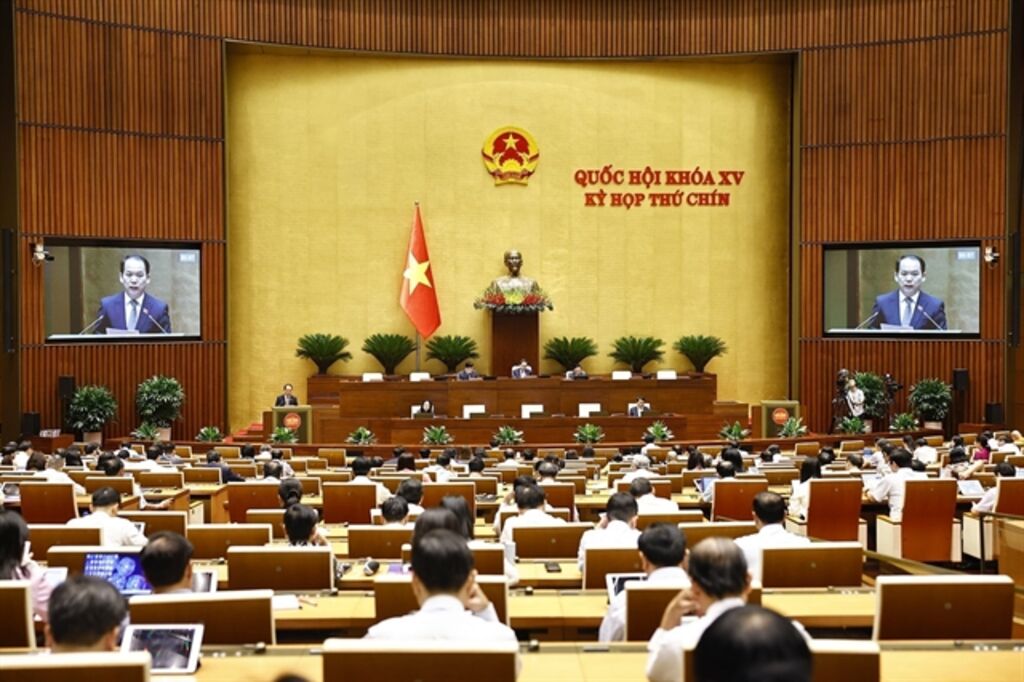 |
| The National Assembly discuss the Government's proposal to abolish capital punishment for several offences on May 20__Photo: VNA |
The Government has proposed abolishing the death penalty for several offences as part of a broader amendment to the Penal Code, marking a significant shift in the country’s approach to criminal justice.
Presenting the draft law to the National Assembly during its 9th session on Tuesday, Minister of Public Security Luong Tam Quang said the Government plans to replace capital punishment with life imprisonment without parole in eight out of 18 offences.
The proposed changes would apply to a range of serious offences, including attempts to overthrow the administration, sabotage of national infrastructure, production and sale of counterfeit medicine, espionage, illegal transportation of narcotics, embezzlement, and bribery.
The draft law also proposes exempting death row inmates from execution in specific humanitarian cases, such as individuals with terminal-stage cancer or those living with AIDS.
Minister Quang said the current law, last amended in 2017, has revealed shortcomings after more than eight years in effect. He noted that some death penalty provisions are no longer aligned with Việt Nam’s socio-economic realities or the evolving nature of crime.
The wide sentencing range in some criminal statutes, spanning 20 years’ imprisonment to life or death, has made it difficult to apply capital punishment consistently.
In practice, courts have largely avoided handing down the death sentence for certain crimes, including subversion and the production of fake medicine. Other crimes, like embezzlement and bribery, have seen the penalty used sparingly.
The Minister said the introduction of life imprisonment without the possibility of parole would maintain public safety by permanently isolating offenders from society, while aligning with the State’s policy of gradually limiting the use of capital punishment.
The proposal has triggered debate among lawmakers.
The Chair of the National Assembly’s Committee for Legal and Judicial Affairs, Hoang Thanh Tung, said there were two main viewpoints.
One group supported the Government’s recommendation to abolish the death penalty for the eight offences. Another agreed with the broader aim of reducing capital punishment but urged caution, particularly regarding crimes such as embezzlement, bribery, and drug trafficking.
Most members of the committee backed the second, more conservative position.
The draft amendment also includes proposals to increase prison terms and financial penalties for certain offences, including environmental crimes and the production or trade of counterfeit goods, food and pharmaceuticals.
Minister Quang said the changes are intended to strengthen deterrence and better protect the rights and interests of citizens and the State.
Tùng said the committee generally supports harsher penalties for crimes related to the environment, drugs, and food safety, but called for further explanation to justify the increases.
He also urged lawmakers to ensure that sentencing remains proportionate to the severity of each offence.
Regarding monetary fines, the committee backed a proposal to double penalties for specific offences related to environmental protection and public order.
Some members also pointed to Politburo Resolution 68, which advises prioritizing financial penalties over prison time when both are available in the same sentencing range for economic and environmental offences.
The committee recommended adjusting fines to appropriate levels and requiring offenders to compensate for the harm caused by their actions.
The Government is seeking approval to pass the draft amendment under a fast-track legislative process during the current National Assembly session.
If adopted, the new law would take effect on July 1, in line with ongoing efforts to streamline Vietnam’s political system and implement a two-tier model of local government. - (VNS/VLLF)









